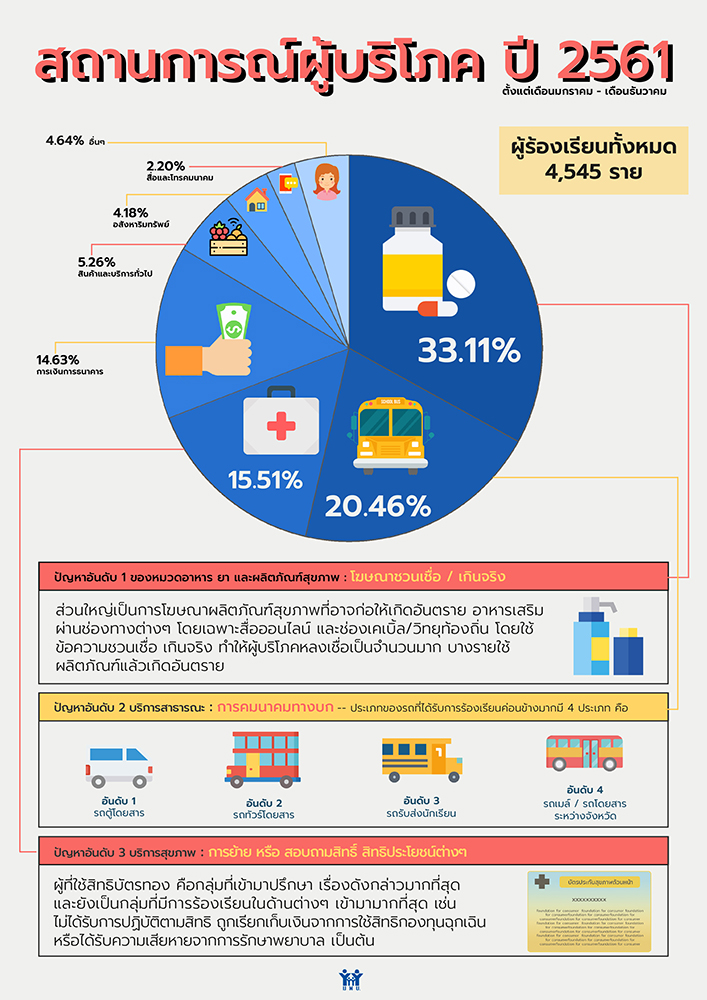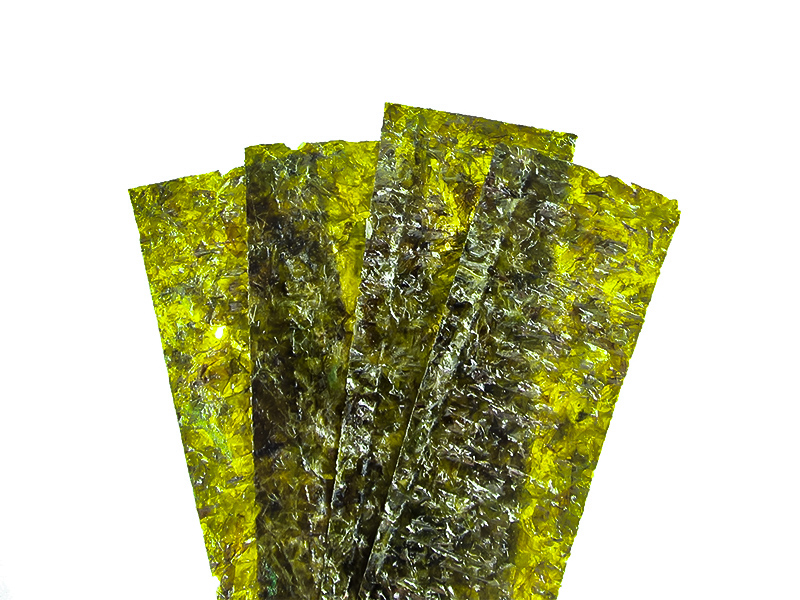
24 January 2019
Foundation for Consumers and seven provincial consumer groups received 4,545 complaints in 2018.
In its annual complaint report yesterday, the foundation said food, drugs and health products topped the list, with 1,505 cases (33.11%). This is followed by 930 complaints on public services (20.46%) and 705 complaints on health and public health services (15.51%).
Among the complaints related to the food, drugs, and health products category, misleading advertisements were the most common problem with 372 complaint cases. These ads which were mostly on health products and food supplements were published on both social and mainstream media, especially local radios and cable TVs. Some cases involved illness or injuries from the use of whitening or slimming products
Among the 930 complaints under the public services, land transport saw the highest number of complaints with cases related to compensation for victims of road accidents involving public buses. Another common cases involved drivers with inappropriate behaviors (being rude to passengers, smoking/talking on the phone while driving, and driving dangerously, etc.). The types of vehicles with most complaints are vans (313 cases), coaches (217 cases), school buses (130 cases), and inter-provincial buses (117 cases).
For health and public health services, the foundation received a lot of questions about the rights and benefits under different health coverage schemes. Most complaints came from consumers under the universal health coverage scheme. Some of them were not getting the full benefits or faced inconvenience while trying to exercise their rights. Some were asked to pay for the medical fee upfront even though the case was eligible for the emergency fund. The foundation urges the government to put more effort in educating consumers with information on different schemes and make sure that everyone receives quality medical service without having to go through too much trouble.

Source: https://consumerthai.org/news-consumerthai/ffc-news/4302-620124comsumerstat.html

